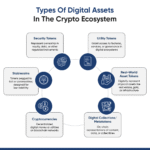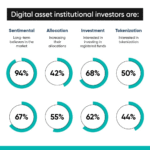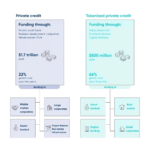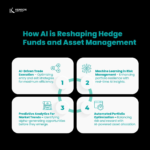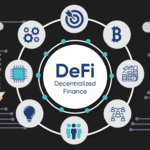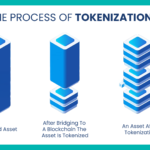1. The Evolving Investment Landscape
1.1 The Rise of Digital Assets
The global financial system is undergoing a metamorphosis, with digital assets emerging as a powerful new force. Cryptocurrencies like Bitcoin, the first and most recognizable, and Ethereum, the king of smart contracts, have not only captured the public imagination but also demonstrated their potential to disrupt long-established financial institutions and processes. These major cryptocurrencies, with their established networks and large market capitalizations, offer a relatively stable foundation for investors seeking Bitcoin investment advice and a place to park their capital.
However, the cryptocurrency landscape extends far beyond these titans. A diverse and ever-expanding array of altcoins, each boasting unique features and targeting specific use cases, is vying for a piece of the digital asset pie.
The debate surrounding Altcoins vs. major cryptocurrencies is a constant hum in the investment world. Investors, eager for growth and portfolio diversification, carefully weigh the potential rewards of these innovative altcoins against the established track record and relative stability of the major players. While altcoins often present the allure of higher returns due to their lower market caps, they also carry a significantly higher degree of risk due to their nascent nature and the potential for volatility.
Making informed decisions in this dynamic and often complex environment requires a deep understanding of several critical factors. Investors must not only stay abreast of the ever-shifting market dynamics, where sentiment can turn on a dime, but also grasp the technological underpinnings of various blockchain projects. Understanding the technical architecture and functionalities of different cryptocurrencies is essential for evaluating their long-term potential.
Additionally, navigating the ever-evolving regulatory landscape surrounding digital assets is crucial. Regulatory policies can have a significant impact on the value and adoption of cryptocurrencies, and investors need to stay informed about potential changes.
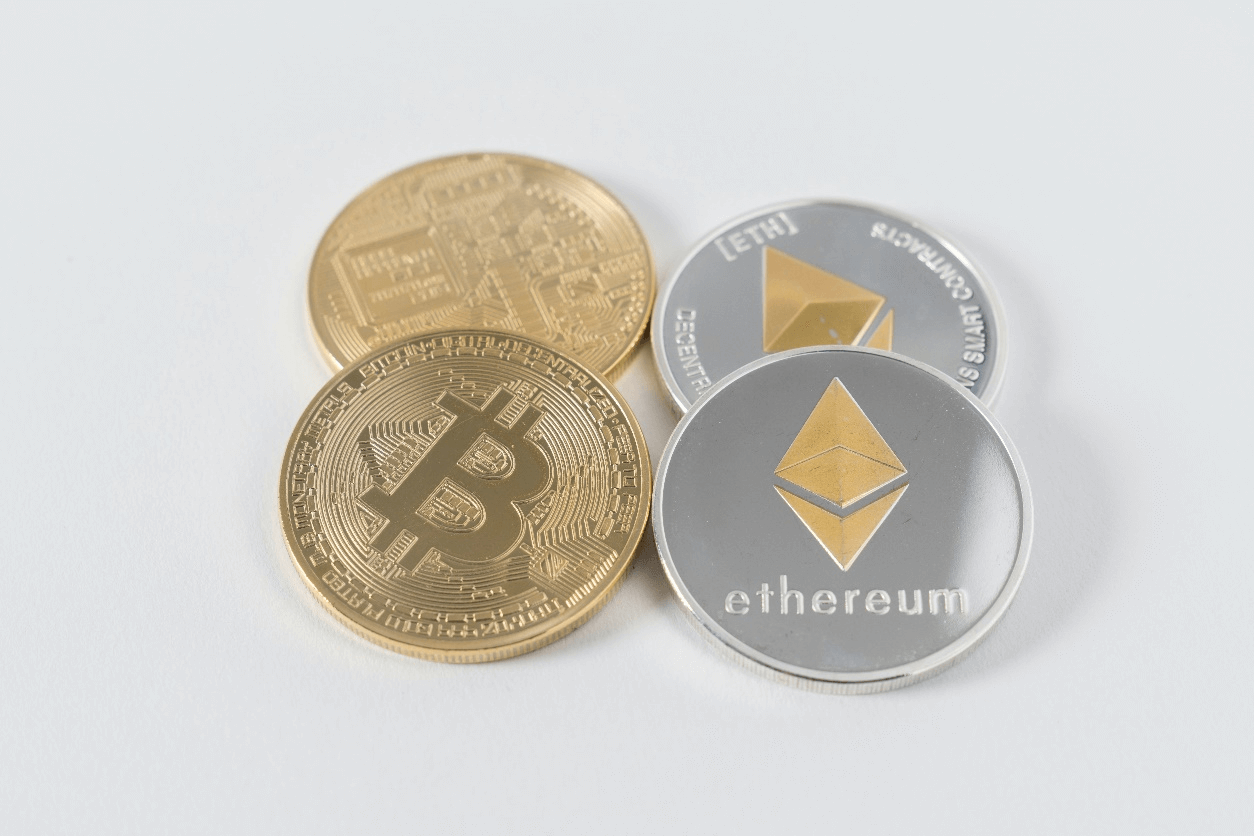
This is where Cryptocurrency investment consultants and Digital asset investment consultants step in, acting as trusted guides in this uncharted territory. By possessing a comprehensive understanding of the market, the technology, and the regulatory environment, these consultants empower investors to navigate the complexities of the digital asset landscape.
They offer a range of valuable services, including in-depth market research, technical analysis of specific cryptocurrencies, and the development of personalized investment strategies that take into account individual risk tolerance and financial goals. Investors seeking short-term gains may be directed towards specific altcoins with high growth potential, while those with a longer-term view can be guided towards established cryptocurrencies or even explore options like stablecoin investment consultants for a more balanced approach.
Beyond cryptocurrencies, the world of digital assets encompasses a wider range of opportunities. NFT investment platforms for digital assets, offering unique tokens with potential for long-term growth, are attracting a growing number of investors. Here, too, consultants can provide valuable insights and help investors navigate this nascent market.
1.2 Blockchain Technology and Its Impact
Blockchain technology, the ingenious innovation underpinning digital assets, has emerged as a transformative force, fundamentally altering how we perceive trust, security, and data management. Unlike traditional systems reliant on centralized authorities, blockchain operates on a decentralized network, fostering a paradigm shift towards transparency, immutability, and enhanced security for transactions. This distributed ledger technology, where each block chronologically records data in a tamper-proof manner, offers a plethora of advantages that transcend the realm of cryptocurrencies.
The impact of blockchain extends far beyond the world of finance, where it empowers the creation and secure exchange of digital assets like Bitcoin and Ethereum. This technology is rapidly transforming various industries, each reaping unique benefits:
Supply Chain Management: Blockchain streamlines complex supply chains by enabling real-time tracking of goods from origin to destination. This fosters greater transparency, reduces the risk of counterfeiting, and enhances efficiency throughout the entire process.

Healthcare: The secure and auditable nature of blockchain empowers healthcare institutions to manage patient data more effectively. From secure medical records storage to streamlining pharmaceutical supply chains, blockchain safeguards sensitive information and facilitates improved data sharing between healthcare providers.
Voting Systems: Blockchain’s immutable ledger system strengthens the integrity of voting processes. By eliminating the possibility of tampering with votes, it fosters greater trust and transparency in democratic elections.
Intellectual Property Management: Protecting intellectual property rights becomes easier with blockchain. Creators can register and track their ownership of digital assets like music, art, and software, ensuring proper attribution and facilitating royalty distribution.
These are just a few examples of how blockchain’s decentralized and secure architecture disrupts traditional models and fosters innovation across diverse sectors. As this technology continues to evolve, we can expect even more transformative applications to emerge.
Blockchain Asset Investments Consultants: Navigating the New Frontier
Given the rapid evolution of the blockchain landscape, navigating the complexities of digital asset investments requires specialized expertise. This is where blockchain asset investment consultants’ step in, acting as trusted guides for businesses and investors venturing into this exciting new frontier. These consultants possess a deep understanding of blockchain technology, its applications across various industries, and the ever-changing regulatory environment surrounding digital assets.
Their comprehensive suite of services empowers clients to make informed decisions and capitalize on the immense potential of blockchain technology. Here’s a closer look at some of the key services offered by blockchain asset investment consultants:
Strategic Digital Asset Consulting: Consultants provide comprehensive guidance on integrating blockchain technology into business operations. This includes identifying suitable use cases, developing implementation strategies, and navigating the technical complexities of blockchain adoption.
Compliance Advisory: The regulatory landscape surrounding digital assets is constantly evolving. Consultants offer expert advice on ensuring compliance with relevant regulations and mitigating potential legal risks associated with digital asset investments.
Innovative Solutions in Digital Asset Consulting: The world of blockchain is brimming with innovation. Consultants stay at the forefront of emerging trends, advising clients on cutting-edge applications like Decentralized Finance (DeFi), Non-Fungible Tokens (NFTs), and real-world asset tokenization.
1.3 The Role of Hedge Fund Companies
Hedge fund companies have been quick to recognize the potential of digital assets. By integrating cryptocurrencies into their portfolios, they are able to enhance returns and diversify risks. Hedge fund company performance analysis indicates that those embracing digital assets often outperform traditional funds. This trend is driven by the high growth potential and volatility of cryptocurrencies, which can yield significant returns when managed effectively.
Hedge fund company investor relations are also evolving in response to the growing interest in digital assets. Transparent communication and robust risk management strategies are essential to maintaining investor confidence. Ethical investing hedge fund companies are focusing on responsible investment practices, ensuring that their digital asset portfolios align with broader environmental, social, and governance (ESG) criteria.
2. Real-World Assets in the Digital Economy
2.1 Tokenization of Real-World Assets
The realm of finance is undergoing a seismic shift fueled by the innovative concept of tokenization. This groundbreaking process involves transforming ownership rights of real-world assets into digital tokens stored securely on a blockchain network. This seemingly simple act of converting physical assets into their digital counterparts unlocks a treasure trove of benefits, fundamentally altering how we perceive ownership, investment opportunities, and market access.
Unveiling the Power of Tokenization
At the core of tokenization lies the transformative power of blockchain technology. Unlike traditional ownership structures, often mired in complex paperwork and centralized control, blockchain offers a decentralized, transparent, and immutable ledger system. Each digital token meticulously represents a fractional ownership stake in a real-world asset, be it a piece of high-end art, a slice of prime real estate, or even a rare commodity like a collectible diamond. This meticulous record-keeping ensures complete transparency throughout the entire ownership lifecycle, fostering trust and minimizing the risk of fraud.
Benefits for Investors and Businesses Alike
The ramifications of tokenization extend far beyond creating digital representations of physical assets. This revolutionary concept unlocks a plethora of advantages for both investors and businesses:
Enhanced Liquidity: Traditionally, investing in high-value assets like real estate or fine art has been restricted to a select few with substantial capital. Tokenization shatters these barriers by enabling fractional ownership. Investors can now purchase a portion of an asset, represented by a digital token, for a significantly lower price compared to the entire asset’s value. This democratizes access to previously illiquid markets, fostering greater participation and boosting overall market liquidity.
Reduced Entry Barriers: Tokenization dismantles the high entry barriers associated with traditional asset ownership. With fractional ownership becoming a reality, investors with smaller budgets can now participate in markets that were previously out of reach. This opens doors for a new generation of investors to diversify their portfolios and potentially reap significant returns.
Increased Efficiency and Lower Costs: The streamlined nature of blockchain technology eliminates the need for intermediaries often involved in traditional asset transactions. Lawyers, brokers, and other third-party service providers traditionally add layers of complexity and cost to the process. Tokenization removes these intermediaries, streamlining transactions, reducing administrative burdens, and ultimately lowering overall costs for both buyers and sellers.
Global Reach and 24/7 Accessibility: Blockchain technology operates on a global network, transcending geographical boundaries. Tokenized assets can be bought and sold on a global marketplace, accessible 24/7. This eliminates geographical restrictions and fosters greater market participation from investors worldwide.
Enhanced Security and Transparency: The immutable nature of blockchain technology ensures a secure and transparent record of ownership for each digital token. Every transaction is meticulously recorded and readily accessible, fostering trust and mitigating the risk of fraud or manipulation. This level of transparency offers significant advantages over traditional paper-based ownership records, which are susceptible to errors and manipulation.
Programmability and New Investment Opportunities: Smart contracts, self-executing contracts written into the blockchain code, add another layer of innovation to tokenization. These contracts can automate pre-determined actions associated with the asset, such as dividend payouts or voting rights for shareholders. This opens doors for new and innovative investment opportunities, further fueling the growth of the tokenized asset landscape.
2.2 Case Studies
The financial landscape is undergoing a metamorphosis, propelled by the innovative concept of tokenization. This groundbreaking process involves meticulously converting ownership rights of real-world assets into digital tokens securely stored on a blockchain network. This seemingly simple act of translating physical assets into their digital counterparts unlocks a treasure trove of benefits, fundamentally altering the way we approach ownership, investment opportunities, and market access. Let’s delve deeper into how tokenization is transforming three key asset classes: real estate, art, and commodities.
Real Estate
The traditional real estate market has long been characterized by high investment barriers and limited liquidity. Tokenization is poised to dismantle these barriers, democratizing access and injecting greater efficiency into this established asset class. Here’s how:
Fractional Ownership: By meticulously dividing ownership of a property into digital tokens, tokenization unlocks the potential for fractional ownership. This empowers investors with smaller budgets to participate in the real estate market. Imagine purchasing a share of a luxurious beachfront villa in Bali or a prime commercial property in New York City – all at a fraction of the traditional investment required. This not only broadens the investor pool but also injects much-needed liquidity into the real estate market.
Streamlined Transactions: The cumbersome paperwork and bureaucratic hurdles associated with traditional real estate transactions are a thing of the past with tokenization. Blockchain technology facilitates secure and transparent peer-to-peer transactions, eliminating the need for intermediaries like brokers and lawyers. This translates to faster transaction times, reduced costs for both buyers and sellers and a more streamlined overall experience.
Global Investment Opportunities: Tokenization transcends geographical limitations. Real estate tokens can be traded on global marketplaces, accessible to investors worldwide 24/7. This fosters greater market participation, potentially attracting foreign investment and boosting overall market activity.
Companies offering digital asset investment solutions are at the forefront of this revolution, acting as trusted guides for investors navigating the tokenized real estate landscape. These companies provide a comprehensive suite of services, including identifying suitable investment opportunities, facilitating secure token transactions, and managing fractional ownership interests.
Art
The art market, traditionally known for its exclusivity and high entry barriers, is experiencing a renaissance fueled by tokenization. This innovative approach allows investors to own fractions of valuable artworks, democratizing access to this coveted asset class. Here’s how tokenization breathes new life into the art world:

Fractional Ownership of Masterpieces: Imagine co-owning a Picasso or a Van Gogh! Tokenization makes this a reality. By dividing ownership of a piece of art into digital tokens, investors can now participate in the art market with a significantly lower investment compared to purchasing the entire artwork. This opens doors for a new generation of art enthusiasts to build diversified art portfolios and potentially reap significant returns.
Enhanced Liquidity: Traditionally, art has been considered an illiquid asset due to the complexities and time constraints associated with selling artwork. Tokenization injects much-needed liquidity into the art market. Digital tokens representing fractional ownership can be easily traded on secondary marketplaces, fostering greater market activity and offering investors more flexibility in managing their art holdings.
NFT Investment Platforms for Unique Digital Collectibles: These platforms play a pivotal role in facilitating art tokenization. NFTs (Non-Fungible Tokens) act as unique digital certificates of ownership for a specific artwork or collectible. NFT investment platforms provide a secure and transparent environment for investors to buy, sell, and manage their NFT holdings, fostering the growth of a vibrant digital art market.
Commodities
Commodities like gold, oil, and agricultural products have long been considered safe-haven investments. Tokenization offers a more efficient and accessible way to trade and invest in these assets. Here’s how:
Fractional Ownership: Similar to real estate and art, tokenization unlocks the potential for fractional ownership of commodities. Investors can purchase tokens representing a fraction of a commodity barrel of oil, a bar of gold, or a bushel of wheat. This allows for greater diversification within a portfolio and caters to investors with varying budgets.
Increased Efficiency: Traditional commodity trading often involves complex logistics and intermediaries. Tokenization streamlines the process by leveraging the power of blockchain technology. Transactions become faster, more transparent, and less susceptible to manipulation.
Stablecoin Investment Consultants: As the bridge between traditional and digital finance, these consultants play a crucial role in guiding investors toward utilizing tokenized commodities for stable returns. Stablecoins, cryptocurrencies pegged to a real-world asset like gold, offer a degree of price stability compared to more volatile cryptocurrencies, making them a potentially attractive investment option within a tokenized commodity portfolio.
3. Emerging Trends in Blockchain Economy
3.1 NFTs and Their Impact
The digital asset landscape has witnessed a paradigm shift with the emergence of Non-Fungible Tokens (NFTs). Unlike their fungible counterparts like Bitcoin, where each unit is identical and interchangeable, NFTs represent unique digital assets stored securely on a blockchain network. This groundbreaking innovation has sparked a revolution, igniting excitement and capturing the imagination of investors, creators, and collectors across diverse industries.
What Makes NFTs Unique?
NFTs possess several key characteristics that differentiate them from traditional digital assets:
Uniqueness: Each NFT is one-of-a-kind, imbued with a unique identifier recorded on the blockchain. This immutability ensures authenticity and verifiable ownership, fostering trust and security in the digital realm.
Scarcity: Unlike infinitely divisible cryptocurrencies, NFTs can be programmed to exist in limited quantities. This artificial scarcity fuels their collectability and potential value appreciation over time.
Programmability: Smart contracts, self-executing code embedded within the NFT, unlock a world of possibilities. These contracts can dictate ownership rights and transferability, and even grant special access or utility within associated ecosystems like online games or virtual worlds.
Fractional Ownership: Similar to traditional assets, NFTs can be divided into smaller units. This allows for broader participation in the ownership of high-value digital assets, opening doors for a new generation of collectors and investors.
3.2 DeFi (Decentralized Finance)
The traditional financial landscape, characterized by centralized institutions and complex regulations, is undergoing a seismic shift fueled by the innovative concept of Decentralized Finance (DeFi). This revolutionary movement leverages the power of blockchain technology to create a peer-to-peer financial ecosystem, disintermediating traditional financial services and empowering users to take control of their financial assets. DeFi platforms operate on a decentralized network, bypassing the need for centralized authorities like banks or brokerage firms. This paradigm shift unlocks a plethora of benefits, fundamentally altering the way we interact with financial services:
Decentralization: The Core Principle of DeFi
At the heart of DeFi lies the concept of decentralization. Unlike traditional financial systems where intermediaries control access to financial products and services, DeFi protocols operate on a distributed ledger technology (blockchain). This distributed ledger ensures transparency and immutability, fostering trust and security within the DeFi ecosystem. Transactions are facilitated through smart contracts, self-executing code stored on the blockchain that automatically execute pre-determined actions when specific conditions are met. This eliminates the need for intermediaries, streamlining processes, reducing costs, and enhancing overall efficiency.
Beyond Traditional Finance
DeFi applications extend far beyond replicating traditional financial services. This innovative ecosystem offers a diverse range of services, empowering users to:
Lending and Borrowing: DeFi platforms facilitate peer-to-peer lending and borrowing, eliminating the need for traditional financial institutions. Users can earn interest by depositing their crypto assets into lending pools, while borrowers can access liquidity without credit checks or centralized approvals.
Decentralized Exchanges (DEXs): DEXs empower users to directly trade cryptocurrencies in a secure and transparent manner, bypassing centralized exchanges with their associated fees and potential manipulation.
Yield Farming and Liquidity Mining: These novel concepts incentivize users to provide liquidity to DeFi protocols. Yield farming involves locking up crypto assets in a DeFi protocol to earn rewards, while liquidity mining involves actively providing liquidity to DEXs in exchange for tokens.
Decentralized Insurance (DInsurance): DeFi offers an alternative to traditional insurance companies. DInsurance protocols leverage smart contracts to create peer-to-peer insurance pools, offering coverage against various risks associated with DeFi activities.
Decentralized Autonomous Organizations (DAOs): DAOs are community-driven organizations governed by smart contracts and fueled by collective decision-making. DeFi has unlocked the potential for DAOs to manage financial resources, invest in assets, and even launch their own cryptocurrencies.
3.3 Stablecoins
The realm of digital assets has witnessed a meteoric rise in recent years, fueled by innovation and the potential for groundbreaking financial paradigms. However, a significant barrier for mainstream adoption has been the inherent volatility associated with many cryptocurrencies. This is where stablecoins emerge as a game-changer, offering a bridge between the innovative potential of cryptocurrencies and the relative stability of traditional assets.
Understanding Stablecoins
Stablecoins are a unique class of cryptocurrencies designed to mitigate the notorious price fluctuations characteristic of the digital asset market. Unlike Bitcoin or Ethereum, which derive their value from market forces, stablecoins are pegged to a stable asset, such as the US dollar, a basket of currencies, or even precious metals like gold. This peg can be achieved through various mechanisms:
Fiat-Collateralized Stablecoins: These stablecoins are backed by reserves of the underlying asset, typically held in traditional financial institutions. For every unit of the stablecoin in circulation, there is an equivalent value of the reserve asset held in custody. Popular examples include Tether (USDT) and USD Coin (USDC).
Algorithmic Stablecoins: These stablecoins utilize algorithms to maintain their peg. Smart contracts automatically adjust the supply of the stablecoin in circulation based on market demand. While innovative, these stablecoins can be more susceptible to market volatility. Dai (DAI) is a prominent example of an algorithmic stablecoin.
Asset-Backed Stablecoins: These stablecoins are backed by a basket of real-world assets such as precious metals, commodities, or even real estate. This diversification offers a degree of stability compared to fiat-collateralized stablecoins.
Why Stablecoins are Gaining Traction
Stablecoins offer a compelling proposition for investors and businesses alike:
Reduced Volatility: By being pegged to a stable asset, stablecoins offer a more predictable price performance compared to other cryptocurrencies. This allows investors to participate in the digital asset ecosystem without being subject to extreme price fluctuations.
Faster Transactions: Stablecoins leverage the efficiency of blockchain technology, enabling faster and cheaper international transactions compared to traditional banking systems.
A Gateway to DeFi: Stablecoins act as the lifeblood of Decentralized Finance (DeFi) protocols. They are used as collateral for loans, facilitate peer-to-peer lending and borrowing, and are essential for participating in various DeFi applications.
Hedging Against Inflation: In times of economic uncertainty, stablecoins pegged to fiat currencies like the US dollar can offer a hedge against inflation.
3.4 Altcoins vs. Major Cryptocurrencies
The digital asset landscape extends far beyond the titans like Bitcoin and Ethereum. A rich tapestry of alternative cryptocurrencies, aptly named altcoins, offer a diverse spectrum of functionalities and use cases. These innovative projects are attracting significant investor interest, driven by the potential for disruptive technologies and the allure of capturing growth in nascent markets. However, navigating this dynamic and often complex world necessitates a strategic approach, and this is where cryptocurrency investment consultants emerge as indispensable allies.
Beyond the Bitcoin Bubble: Unveiling the Diversity of Altcoins
Altcoins encompass a vast array of digital assets, each with unique characteristics and purposes. Here’s a glimpse into the diverse landscape of altcoins:
Privacy Coins: These altcoins prioritize user anonymity and transaction privacy, utilizing advanced cryptographic techniques to obfuscate transaction details. Examples include Monero (XMR) and Zcash (ZEC).
Smart Contract Platforms: These altcoins, like Ethereum (ETH), Solana (SOL), and Cardano (ADA), facilitate the creation and execution of smart contracts – self-executing code that automates agreements and fosters the development of Decentralized Applications (dApps).
Utility Tokens: These tokens grant access to specific services or functionalities within a particular ecosystem. For instance, Filecoin (FIL) incentivizes users to provide decentralized storage solutions, while Basic Attention Token (BAT) rewards users for their attention within a privacy-focused browsing platform.
Security Tokens: These tokens represent ownership or rights associated with real-world assets like real estate or securities. Security tokens offer the potential for increased liquidity and fractional ownership of traditionally illiquid assets.
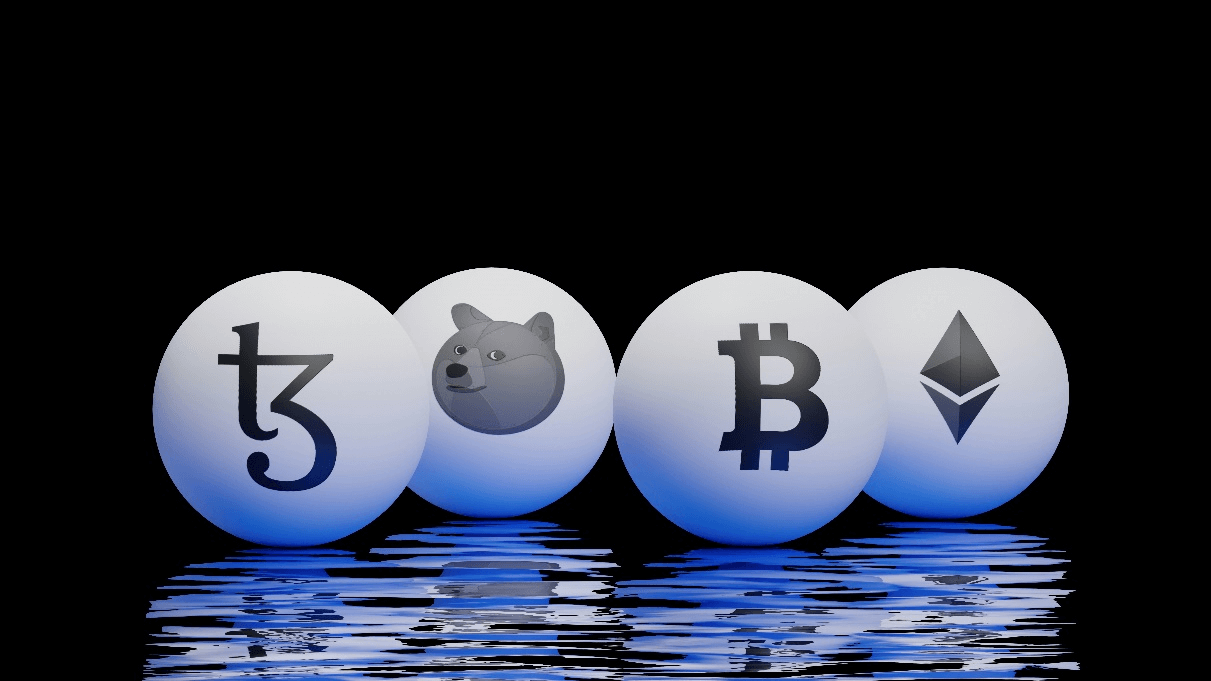
4. Strategies for Navigating the Digital Economy
4.1 Investment Advice for Digital Currency
Investment advice for digital currency is crucial for investors looking to enter the digital asset market. This includes understanding the different types of digital assets, market trends, and potential risks. Cryptocurrency investment consultants provide expert guidance, helping investors make informed decisions and navigate the complexities of the digital asset market.
4.2 Hedge Fund Investment Strategies
Hedge fund investment strategies are evolving to include digital assets. Leading hedge fund management companies are incorporating these assets into their portfolios to enhance returns and diversify risks. Innovative hedge fund companies are at the forefront of this trend, leveraging their expertise in digital asset management to stay ahead of the competition.
4.3 Risk Management in Crypto Investments
Risk management in crypto investments is essential due to the high volatility of digital assets. Hedge fund company risk management practices are being adapted to address the unique challenges of investing in cryptocurrencies. This includes developing robust risk management frameworks, implementing advanced analytics, and employing sophisticated trading strategies.
4.4 Ethical Investing in Digital Assets
Ethical investing hedge fund companies are focusing on digital assets that align with their values, such as environmentally sustainable cryptocurrencies and socially responsible projects. This approach not only enhances returns but also ensures that investments contribute to positive social and environmental outcomes.
5. The Role of Digital Asset Consulting
5.1 Enhancing ROI with Digital Asset Consulting
The digital asset landscape presents a vast and ever-evolving frontier, brimming with both immense potential and inherent complexities. As this innovative space continues to disrupt traditional investment models, digital asset consulting firms emerge as indispensable allies for investors seeking to navigate this dynamic ecosystem and maximize their return on investment (ROI).
These specialized firms go beyond simply offering generic financial advice. They leverage a deep understanding of blockchain technology, diverse digital assets, and emerging trends to empower their clients with strategic digital asset consulting partnerships tailored to unlock superior ROI.
Specialized Services of Digital Asset Consulting Firms
Digital asset consulting firms offer a comprehensive suite of services designed to equip clients with the knowledge, strategies, and resources needed to navigate the intricate world of digital assets. Here’s a closer look at how these firms empower investors to achieve exceptional ROI, with a specific focus on the burgeoning market of Non-Fungible Tokens (NFTs) and digital collectibles:
In-Depth NFT Market Research and Analysis: The NFT market is a rapidly evolving space, with new projects and trends emerging constantly. Digital asset consulting firms employ dedicated research teams to stay at the forefront of this dynamic landscape. These teams conduct meticulous research on various NFT projects, analyzing factors such as the underlying technology, team expertise, artistic merit (for art-based NFTs), roadmap for future development, and potential market demand.
This in-depth analysis empowers clients to identify promising NFT investment opportunities with high-growth potential and mitigate the risks associated with investing in nascent projects.

Curation and Due Diligence for Digital Collectibles: The vast array of digital collectibles available can be overwhelming for new investors. Digital asset consulting firms act as curators, sifting through the multitude of NFT projects and identifying those with the strongest potential for value appreciation. Furthermore, consultants conduct thorough due diligence on these projects, meticulously examining factors such as the smart contract code for potential vulnerabilities, the project’s ownership structure, and the creator’s reputation within the NFT community. This comprehensive due diligence process minimizes the risk of clients investing in fraudulent or poorly conceived NFT projects, safeguarding their capital and maximizing their ROI potential.
Valuation Strategies for NFTs and Digital Collectibles: Unlike traditional assets with established valuation methodologies, NFTs pose a unique challenge. Digital asset consulting firms employ specialized NFT valuation techniques that take into account various factors beyond simple market demand. These techniques may involve analyzing historical sales data for similar NFTs, assessing the utility or functionality associated with the NFT, and considering the overall artistic value or cultural significance of the digital collectible. By employing these sophisticated valuation strategies, consultants assist clients in making informed investment decisions and acquiring NFTs at a fair market price, maximizing their long-term ROI.
Tailored Investment Strategies and Portfolio Diversification: Investing in digital assets requires a strategic approach. Digital asset consulting firms work closely with their clients to understand their individual risk tolerance, investment goals, and collecting preferences. Based on this client-centric approach, consultants develop customized investment strategies that incorporate a diversified portfolio of NFTs across various asset classes and risk profiles. This diversification helps mitigate the inherent volatility of the NFT market while maximizing the potential for long-term returns.
Blockchain Technology Education and Security Best Practices: Navigating the digital asset space requires a fundamental understanding of blockchain technology and the associated security risks. Digital asset consulting firms offer comprehensive educational resources and workshops, empowering clients to understand the workings of blockchain, identify potential security threats, and implement secure storage solutions for their digital assets. This knowledge empowers clients to invest with confidence, minimizing the risk of theft or loss of their valuable NFTs.
5.2 Comprehensive Digital Asset Consulting Services
Comprehensive digital asset consulting services cover various aspects of digital investments, from strategy development to implementation and ongoing management. These services include:
Digital Asset Management Services: Managing and optimizing digital asset portfolios to maximize returns.
Digital Asset Advisory Services: Providing strategic advice on digital asset investments, including cryptocurrency investment strategies and blockchain-based investment opportunities.
Digital Asset Consulting for Compliance: Ensuring compliance with regulatory requirements in the digital asset space, providing secure digital asset consulting solutions for businesses.
5.3 Specialized Digital Asset Consulting Firms
Specialized digital asset consulting firms offer tailored solutions to meet the unique needs of their clients. These firms provide customized digital asset consulting solutions, helping investors achieve their specific investment goals. They also offer secure digital asset consulting solutions, ensuring the security of digital assets through best practices in digital asset management.
6. Future Outlook
6.1 Long-Term Investment in Digital Assets
Long-term investment in digital assets is becoming increasingly attractive as the market matures and regulatory clarity improves. Investors are looking beyond short-term gains and focusing on the long-term potential of blockchain-based investment opportunities. This includes investing in the digital age, navigating the digital asset market, and leveraging the expertise of digital asset consulting firms.
The digital asset landscape has undeniably captured the imagination of investors worldwide. While the initial allure often focused on short-term gains and market volatility, a crucial shift is underway. As the market matures and regulatory frameworks evolve, a growing number of investors are recognizing the long-term potential of digital assets and their underlying blockchain technology. This marks a significant turning point, transitioning from a speculative frenzy to a strategic approach focused on building sustainable wealth creation through long-term investments.
Several factors contribute to the growing appeal of long-term investments in digital assets:
Maturing Market Infrastructure: The digital asset market is no longer a nascent frontier. Established exchanges, robust custody solutions, and a growing ecosystem of service providers create a more secure and reliable foundation for long-term investment strategies.
Evolving Regulatory Landscape: Regulatory clarity is essential for fostering investor confidence and driving long-term adoption. As regulatory frameworks develop and mature, investors gain a greater sense of security and predictability, mitigating concerns about potential market manipulation or disruptive regulatory intervention.
Technological Innovation: Blockchain technology, the cornerstone of digital assets, is constantly evolving. Advancements in scalability, security, and interoperability are paving the way for more efficient and secure transactions, fostering greater trust and laying the groundwork for wider institutional adoption.
Emergence of Utility-Driven Projects: The focus is shifting from purely speculative assets to projects with real-world utility and long-term growth potential. Digital assets associated with Decentralized Finance (DeFi) protocols, Non-Fungible Tokens (NFTs) representing unique digital ownership, and platforms leveraging blockchain for supply chain management or data security are gaining traction. Investors are drawn to the potential for these projects to disrupt traditional industries and drive long-term value creation.
Diversification and Portfolio Hedging: Digital assets offer a unique asset class with a low correlation to traditional markets like stocks and bonds. This low correlation makes them a valuable tool for portfolio diversification, potentially mitigating overall portfolio risk and offering a hedge against inflation.
6.2 Security and Transparency in Digital Asset Management
Security in digital asset management is a top priority for investors. Transparent investment solutions that leverage blockchain technology are providing greater confidence and trust in the market. Consulting on digital asset management is crucial for ensuring the security and transparency of digital asset investments.
6.3 Innovative Investment Solutions
Innovative investment solutions, such as crypto hedge fund manager services and cryptocurrency growth fund management, are emerging to meet the needs of modern investors. These solutions offer new ways to diversify portfolios and capture growth in the digital economy. Digital asset investment solutions and blockchain asset investments consultants are at the forefront of this innovation, providing expert guidance and support.
6.4 The Role of Digital Asset Consulting in Future Investments
The digital asset landscape is a dynamic and ever-evolving ecosystem brimming with both immense potential and inherent complexities. As this innovative space continues to mature and redefine traditional investment models, the role of digital asset consulting firms becomes increasingly crucial. These specialized firms act as trusted guides, empowering investors and businesses to navigate the intricacies of digital assets and capitalize on the exciting opportunities they present.
Value Proposition of Digital Asset Consulting Firms
Digital asset consulting firms offer a comprehensive suite of services designed to equip clients with the knowledge, strategies, and resources needed to thrive in this new frontier. Here’s a closer look at the value proposition these firms bring to the table:
Unparalleled Expertise: The digital asset market is a complex and rapidly evolving space. Leading digital asset consulting experts possess a deep understanding of the underlying technologies like blockchain, the intricacies of various digital assets, and the ever-shifting regulatory landscape. This expertise empowers consultants to provide tailored guidance that addresses each client’s specific needs and risk tolerance.

Strategic Navigation: The digital asset market presents a plethora of investment opportunities, from established cryptocurrencies like Bitcoin to emerging asset classes like tokenized real estate and Decentralized Finance (DeFi). Digital asset consulting firms help clients navigate this diverse landscape, identifying suitable investment opportunities aligned with their financial goals and risk tolerance. This includes conducting in-depth market research, analyzing investment options, and developing customized digital asset investment solutions.
Risk Management and Compliance: The digital asset space is not without its risks. Reputable digital asset consulting firms prioritize risk mitigation strategies, educating clients on potential pitfalls and guiding them towards secure investment practices. Additionally, they stay abreast of evolving regulations surrounding digital assets, ensuring clients operate within a compliant framework.
Innovation and Cutting-Edge Solutions: The digital asset landscape is constantly evolving, with new technologies and applications emerging at a rapid pace. Digital asset consulting firms remain at the forefront of innovation, keeping clients informed of emerging trends and exploring cutting-edge solutions like tokenization, fractional ownership of assets, and the integration of DeFi protocols.
Demystifying the Digital Landscape: For many investors, the digital asset space can be shrouded in complexity and technical jargon. Digital asset consulting firms act as translators, demystifying complex concepts and providing clear, concise explanations that empower clients to make informed investment decisions. This includes educational workshops, personalized consultations, and access to insightful market research reports.
Security and Transparency in Digital Asset Management
Security in digital asset management is a top priority for investors. Transparent investment solutions that leverage blockchain technology are providing greater confidence and trust in the market.
Innovative Investment Solutions
Innovative investment solutions, such as crypto hedge fund manager services and cryptocurrency growth fund management, are emerging to meet the needs of modern investors. These solutions offer new ways to diversify portfolios and capture growth in the digital economy.
Conclusion
Financial institutions are also taking note of the digital asset revolution. Hedge fund companies are increasingly incorporating cryptocurrency hedge funds, cryptocurrency index fund management, and cryptocurrency growth fund management into their offerings. Investors seeking exposure to the digital asset space through established financial vehicles can leverage the expertise of hedge fund company performance analysis and hedge fund company investor relations specialists to identify suitable investment opportunities. However, it’s crucial to remember that hedge fund company risk management is paramount, and investors should carefully consider their risk tolerance before venturing into these potentially volatile markets. Working with experienced professionals such as Kenson Investments can make the difference.
Enhancing ROI with digital asset consulting goes beyond simply selecting the right assets. Consultants at Kenson Investments can also provide valuable guidance on digital asset management, including portfolio construction, risk mitigation strategies, and compliance considerations. This ensures investors not only maximize returns but also navigate the regulatory landscape with confidence.
Working With Kenson Investments
Leading digital asset consulting firms offer a comprehensive suite of services, including Blockchain and digital asset consulting, Digital Assets Consulting for Startups, Digital asset consulting for compliance, and Innovative solutions in digital asset consulting. These services encompass everything from evaluating digital asset consulting firms and selecting the right strategic digital asset consulting partner to consulting on NFTs and digital collectibles and DeFi Finance consulting services.
In today’s digital age, investing in digital assets presents a compelling opportunity for investors seeking diversification and growth. However, navigating this complex and ever-evolving market requires a strategic approach. By leveraging the expertise of Digital asset advisory services, investors can gain the knowledge and guidance they need to make informed decisions, develop digital asset investment solutions, and achieve their financial goals. This can include services like consulting on digital asset management, partnering with a Global digital asset consulting firm, or securing Secure digital asset consulting solutions.
The digital asset landscape encompasses a broad spectrum of opportunities, from established cryptocurrencies like Bitcoin to innovative new asset classes like NFTs and DeFi. With the help of experienced consultants at Kenson Investments, investors can explore Venture Capital Fund Management, Digital Asset Management Consulting, crypto investment consulting, or even identify the best crypto investment company to suit their specific needs. This can include services like crypto investment firm selection
Investors, hedge fund companies, and digital asset consulting firms must continue to adapt and innovate to stay ahead of the curve. By leveraging the expertise of cryptocurrency investment consultants, blockchain asset investment consultants, and other specialized professionals, investors can navigate the complexities of the digital asset market and capitalize on the opportunities it presents.
In conclusion, the future of digital investments is full of promise and potential. With the right strategies, tools, and guidance, investors can successfully navigate the evolving digital economy and achieve their investment goals.Work with us today.



